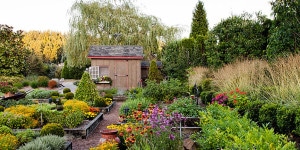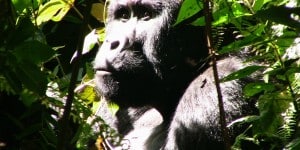It was a whisper, barely enough to flutter the sails of Agamemnon, that originally set me careening down the mountainous coast of Turkey in my puny Renault, searching for a colony of backpackers living in the trees. A 21-year-old wanderer from Iceland, whom I’d met in Egypt, had murmured of a narrow valley that spilled onto a huge crescent of beach cradling a turquoise sea. Orange groves, he uttered; Greek and Roman ruins. The hillsides erupted with flames, he claimed. The valley was called Olympos, after the home of the gods. I paid no attention to these ravings.
But later, much later, I began to dream. I thumbed through guidebooks and pored over maps, with limited success. The Aegean, from the rugged mountains and sun-bleached islands of Greece to the rocky coast of Turkey, is a remarkably uniform region, despite the divisions of borders, languages, and religions. Blessed with flinty, steep terrain, an embracing ocean, and a common history, Greece and Turkey share everything from cuisines to history to place names. I found places called Olympos, Olimpus, Olympus, and Olimpos before deciding which one of them must be The Place. I bought a ticket to Antalya, Turkey, rented a car, and blew west on a zephyr, toward the valley of Olympos.
Twelve years ago I missed the lake town of Dali in western China. I never made it to El Bolsón in Patagonia. And that undiscovered border town in Laos calledwell, actually, I’m not telling you that one. The names of these oases are shared quietly among global drifters and First World vagabonds in need of a new place to pause. Scenery, cheap digs, and good music are the requirements for an outpost on this circuit, and Olympos, Turkey, is eminently qualified on all fronts.
I arrived just after dark, sliding through a gorge in Bey Mountains National Park and forcing the Renault through a flooded stream before the road led me straight into the heart of things: Kadir’s Top Tree Houses, a ramshackle collection of huts built in a grove of 100-foot pines. Kadir’s was packed with a hundred on-the-loose tweenagers from all corners of the globe and a heavy supplement of Turkish hipsters. Six dollars got me a creaky bunk bed, one of four in a small cabin set 25 feet up in a tree, and I spent the jet-lagged hours of my first night listening to two Danes and a German snore while the branches swayed in a breeze.
In the light of morning I got my first real look at the place: some 60 cabins and tree houses, a two-story lodge speared through the middle by a giant, gnarled pine, a total of seven public toilets, and solar-heated showers (not much good during a week of constant clouds). Kadir, the rotund eponymous Turkish owner, explained that farmers had stored their grain in elevated huts for centuries, and he was now storing backpackers that way. He’s allowed his clientele to name the cabins, and, lacking a reservation, I bounced from bed to bed all week, shunted from Princess Koak to The Nuthouse, and eventually making my home in The Betty Ford Clinic.
Amid this crowd of beardless youths I was first a stranger, but by the second night, things worked as they always do. In the dinner line I met an engineer from Istanbul who insisted on being called Mickey and introduced me to his friends. Later, upstairs amid dangling brass teapots and kilim mats, I shared my topo map with a gaggle of German cyclists heading, overland, for Australia. Each night, as the music got louder and faster, the endless bottles of cheap Turkish wine cemented international brotherhood. A nightly bonfire gave focus, and people danced until 2 a.m. to traditional Turkish pop artists like James Brown and Gerry Rafferty. Clusters of travelers sat cross-legged on carpets and got stoned on raki, the licorice-flavored national drink. I met Finns, Australians, and an American who was actually named Happy.
All you had to do was sit still and watch. The entire globe, it seemed, would eventually stroll into Kadir’s, some hitchhiking, others riding the infrequent microbus from Antalya. Night after night, these strangers would draw close to the wood stove to talk of geography, mouth lyrics, maybe fall in love. After days, or weeks, or even months, they would exchange e-mail addresses and hugs, and then drift on.
By day these jesters slept, sat on the beach, or hiked into the pastthe interlayered ruins behind Kadir’s can consume days of clambering. The Lycians, whom Homer tells us fought alongside the Trojans, were among the earliest residents of Olympos. Then came the Greeks, and then the Romans (succeeded, at various times, by the Crusaders, the Arabs, and the Turks). I followed one stone irrigation channel a few hundred yards to discover a roofless temple and a crumbled two-story house still graced with a mosaic floor where, I imagined, the children of antiquity learned to walk. Two immense sarcophagi, set in niches along a hillside, overlooked the sea.
One afternoon the arc of the beach, a strand of black stones and gray sand that ran north for more than a mile, led me on from the ruins. At the far end, past the last turquoise waves, a rutted road led to a steep paththe trail to the eternal flames that had been part of that first rumor. Half an hour uphill, I stumbled onto the foundation walls of a small Roman temple to Vulcan (the god of fire, not the planet of pointy-eared first officers). Just above it, a score of bonfires hissed; the chimaera, as they’re called, have been burning for thousands of years, fueled only by a mysterious gas seeping from the rocks.
As night closed in, the Greek lettering on the stones around the chimaera left me measuring the hush of the past against the noisy future, ancient oracles against the global party. This was a tourism site for the Romans; even the Greeks were arrivistes when they came here. Today Turkish tourists hike up to light their cigarettes on the eternal flames, as if they were ancient Zippos.
When rain and then hail drove me out of the hills, I was simply too filthy to stand it anymore. The solar showers at Kadir’s still cold, I checked out of Betty Ford and spent the next day driving slowly west along the Turquoise Coast, on roads that twisted over azure water and pebbled beaches. In Kas, a well-equipped center for yachting and diving, I stayed in a real hotel, with a pool and air-conditioning. I shaved. I went to a real restaurant, and ate calamari and grilled snapper with lemon. English yachtsmen wandered about while retirees complained about the price of boat tours in the harbor. It was lovely. And totally, deeply, boring.
In the morning, after one more hot shower, I rushed back to Olympos, arriving just in time for the Saturday-night bonfire at Kadir’s. The Betty Ford Clinic was full, but one cabin was much like another. The toilets were a mess, but so what. Mickey was still there, and Happy, too. A woman belly danced to Nirvana. Some French people showed up. In Olympos, the good times always roll on.
via Hiking/Trekking In Greece – Playground of the Gods | Turkey | OutsideOnline.com.



